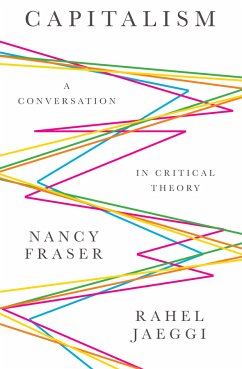
Spheres of Insurrection (eBook, ePUB)
Notes on Decolonizing the Unconscious
Übersetzer: Moya, Sergio Delgado
Versandkostenfrei!
Sofort per Download lieferbar
16,99 €
inkl. MwSt.
Weitere Ausgaben:

PAYBACK Punkte
0 °P sammeln!
As the globalized regime of neoliberal capitalism consolidates its grip on the world, it refines the micropolitics proper to the capitalist system and makes it more perverse. This micropolitics involves the appropriation - what Suely Rolnik calls the "pimping" - of life, as it turns the life drive itself away from creation and cooperation and towards the deadening, destructive practice necessary for capital accumulation. This dynamic is the engine of what Rolnik calls the colonial-capitalistic unconscious regime. She also identifies the conditions necessary to fight against this regime - namel...
As the globalized regime of neoliberal capitalism consolidates its grip on the world, it refines the micropolitics proper to the capitalist system and makes it more perverse. This micropolitics involves the appropriation - what Suely Rolnik calls the "pimping" - of life, as it turns the life drive itself away from creation and cooperation and towards the deadening, destructive practice necessary for capital accumulation. This dynamic is the engine of what Rolnik calls the colonial-capitalistic unconscious regime. She also identifies the conditions necessary to fight against this regime - namely, a reappropriation of the life drive, the energetic basis at the heart of all life forms, human life included, and the principal source of extraction for capitalism.
Drawing on examples from across the Americas, including Brazil and the United States, Rolnik examines the circumstances that have given rise to regressive, reactionary governments throughout the world. These circumstances include, at the macro level, an alliance between neoliberalism and extreme conservatism and, at the micro level, a crisis of the hegemonic subject in the face of the emergent empowerment of marginalized communities that practice other modes of subjectivation.
This crucial book by one of the most prominent intellectuals in Latin America today will be of great value to anyone interested in contemporary politics and social struggles.
Drawing on examples from across the Americas, including Brazil and the United States, Rolnik examines the circumstances that have given rise to regressive, reactionary governments throughout the world. These circumstances include, at the macro level, an alliance between neoliberalism and extreme conservatism and, at the micro level, a crisis of the hegemonic subject in the face of the emergent empowerment of marginalized communities that practice other modes of subjectivation.
This crucial book by one of the most prominent intellectuals in Latin America today will be of great value to anyone interested in contemporary politics and social struggles.
Dieser Download kann aus rechtlichen Gründen nur mit Rechnungsadresse in D ausgeliefert werden.













